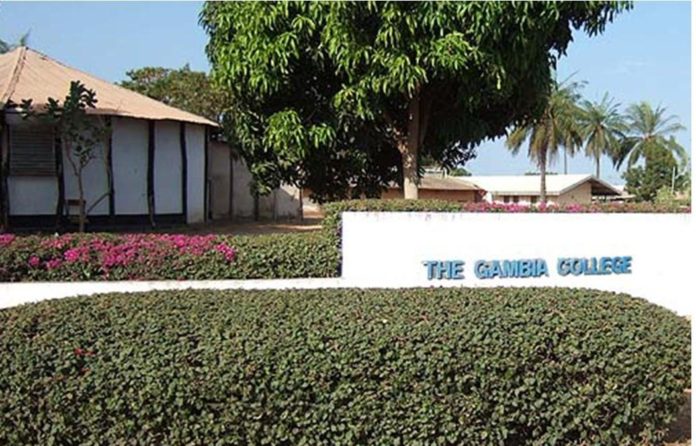
Lecturers at Gambia College are on strike over pay and poor working conditions. The College Academic Staff Association (GCASA) says their members won’t return to work until all their demands are met.
Some of the demands include a fifty per cent salary increase and no more delay in the payment of their salaries.
This is the second strike action over pay that the academic staff have embarked on in less than a year.
Andrew Gomez, president of the College Academic Staff Association, said that lecturers were not paid their salaries on time and that they are yet to benefit from the 50% salary increment for civil servants announced by the government.
Mr. Gomez said they want assurances from the College administration that they will keep to their promise of paying the 50% increase by the end of May and that there won’t any more delay with the paying of their salaries.
“The situation is no more bearable. Both Council and Government should do something about this. We thought this will be history but instead, it is repeating itself,” he said.
He said it has been hard for the lecturers and their families to make ends meet particularly during this holy month of Ramadan.
However the principal of the Gambia College, Abubacarr Jallow, questioned the reasons for the strike action. He said the lecturers have been paid their salaries.
Mr. Jallow said the 50% salary increment announced by the government did not apply to the lecturers as they are excluded from the government’s integrated pay scale.
He said negotiations are ongoing with the striking lecturers and hope that the dispute will soon be resolved.
The strike action has disrupted classes and many students are disappointed that the lecturers have not being treated fairly.
“We are calling on the president to hold whoever is responsible for the failure of payment of the lecturers, because you can see that our college admin is really trying but it’s like there is a problem somewhere and we want the president, since he is the head of state and we voted for him, to come out from his comfort zone and make sure that this problem is solved permanently,” said Ebrima Sambou, a final year student.










Recent Comments